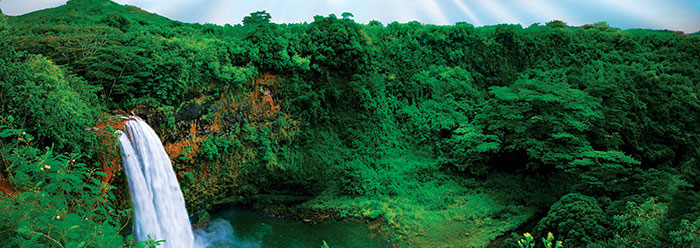I recently attended a church lecture by a popular “semi-creationist” who advocates his special melding of mainstream science with a self-described “literal” view of Scripture. In his model, the universe began with the Big Bang around 14 billion years ago, our solar system appeared some 10 billion years ago, and Earth made its entrance about 4.6 billion years ago. Life commenced one to three billion years ago followed by—in order of appearance—invertebrates, vertebrate fish, amphibians, mammals, and, finally, man.
If this sounds familiar, it should. This model is exactly the order postulated by secular scientists for evolution. However, in this speaker’s model, creation was directly accomplished and orchestrated by the Bible’s Creator God. Where differences become apparent, the lecturer “stretches” Scripture—as if he has a license to do so—to make the ideas seem to fit together.
Obviously, in this compromised view, death and extinction reigned long before man was created and, thus, long before man’s sin brought the curse of death into the once “very good” creation (Genesis 1:31). According to this semi-creationist, the fossil record of dead things was deposited long before Adam, and it recorded not only death, but horrible death, suffering, carnivorous activity, cancer, parasites, and all sorts of other bad things.
Yet, after the creation of mankind, God called it all “very good.” The speaker’s teachings led some of those in the audience to question the semi-creationist’s perspective: Did God know how bad things were? Does He occasionally call bad things good? When questioned, the speaker insisted that death and extinction were and are actually good because over time they allow for more recent (i.e., more advanced) creations to dominate and somehow keep the ecology fresh. The lecturer has written for decades that this world full of death may have been God’s “very good” creation, but it wasn’t His “very best” creation, thereby justifying his concept of a death-filled but still “very good” creation.
Initially, I reacted with a measure of disgust that a fellow Christian would so besmirch the Word and work of God with this tortured reasoning, but there is a sense in which he is correct that God’s initial created world was not “very best.”
The Bible teaches that this present world with all its difficulties, suffering, and death caused by man’s sin will one day “pass away with a great noise” and be recreated as the “new heavens and new earth, wherein dwelleth righteousness” (2 Peter 3:10, 13). The physical material will “melt with fervent heat,” and will be made new once again. God’s perfect intention for creation has been delayed by sin and its “wages”—death—bu
t will not ultimately be thwarted (Romans 6:23). He will accomplish exactly what He planned; His Word shall not return void.
The Edenic world and the new earth are in many ways comparable, but they certainly are not the same. Once more, there will be no death or tears, and we will live forever in perfect fellowship with our Redeemer (Revelation 21:4). Furthermore, the new earth itself will be even better than the old. For instance, Adam’s ability to choose sin and its consequence will not be present in the new. Satan, the great deceiver and tempter to sin, will certainly not be there—his total destruction will have been accomplished by then. Adam saw the glorious Edenic world and actually “walked with God,” but still rejected Him and His authority (Genesis 3:8).
Regarding the new earth, we are told, “Eye hath not seen, nor ear heard…the things which God hath prepared for them that love Him” (1 Corinthians 2:9). The new earth will be even better than before but not for the reasons old earth advocates claim!
Best of all, we will be there. Those who have accepted God’s free gift of forgiveness and eternal life bought by the death of His only begotten Son will participate in sweet, unbroken fellowship once again with the One who created and redeemed us. What a heritage and hope—what an eternal future awaits us!
* Dr. Morris is President of the Institute for Creation Research.
Cite this article: Morris, J. 2013. God’s "Very Best" Creation. Acts & Facts. 42 (7): 14-15.















